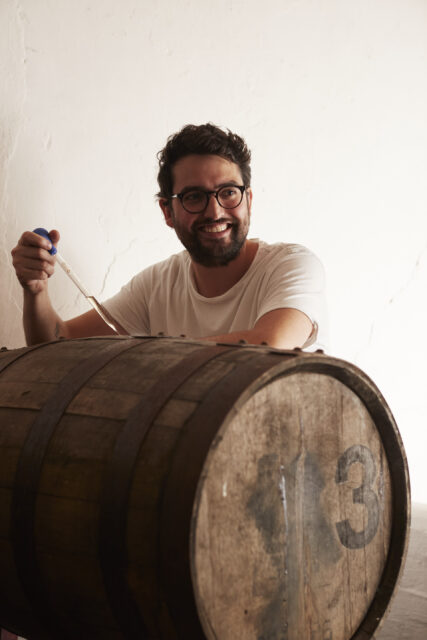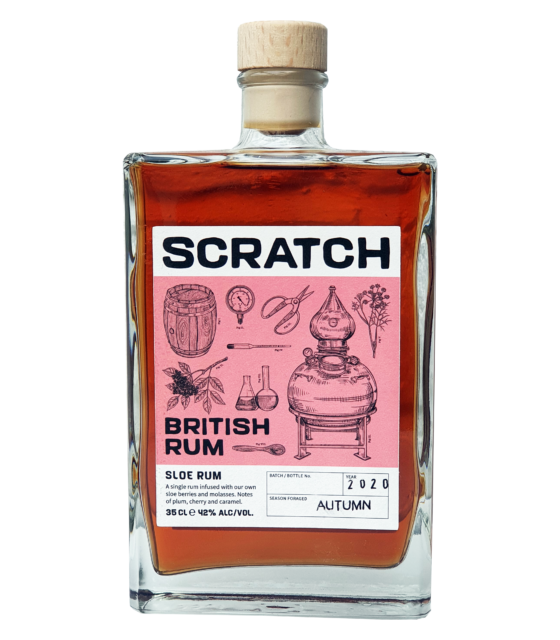Loosely protected rum category allowing producers ‘to take the piss’ says distiller
By Patrick SchmittThe lack of regulations for rum is allowing “some producers to take the piss”, says the founder of Scratch Spirits, Doug Miller, in an exclusive interview with the drinks business.

Miller, who founded Scratch Spirits in 2016, thereby creating one of the first rum distillers in the UK, told db last month that his approach was at odds with some in the sector who he feels are misleading consumers with a lack of clarity when it comes to production techniques and ingredient sourcing.
“I wanted to be really transparent around the process,” he said of his British rums, adding, “because one of the fundamental issues of rum at the moment is that it’s not a hugely transparent category – there are not the same protections as Scotch whisky or even gin – and some producers are taking the piss,” he said.
“I am creating an honest brand of rum,” he added.
The problem is particularly acute in the UK, according to Miller, who said that rum is simply classified as a spirit drink without protections in place in terms of process or sourcing, allowing “a lot of producers to create essentially ethanol, flavouring it, and calling it rum.”
While he said this was “a broad issue”, he observed a further problem that’s specific to the UK, which concerns “producers importing rum from places like the Caribbean, flavouring it or diluting it in the UK, and then calling it British rum, or saying it is ‘crafted in the UK, or ‘crafted in’ whatever country this is done in.”
Miller, a self-confessed rum nerd, explained that the style of rum depends on where it comes from, with marked differences according to source, and therefore, in his view, “trying to create a style of rum in the UK without doing anything is lazy.”
In contrast, Miller has taken the long and arduous route of producing Scratch British rum at his distillery in Hertfordshire using home grown ingredients “as much as possible”, noting that “we don’t grow sugar cane in the UK” – the by-products of which are of course the base material for making rum.
However, he said that he uses “British refined molasses”, while his water source is a “bore hole into a Hertfordshire aquifer,” which is located on the estate where his distillery is based. Meanwhile, his yeast is “from a UK supplier”, and that’s also for practical reasons: “with the climate we have in the UK a rum yeast from elsewhere wouldn’t work the same way, and that’s why we have different flavours from traditional Caribbean rum.”
As for any botanicals employed in his spirits, these are locally grown or foraged, noting that there are “so many different plants that are native to the UK that have amazing properties – distillation has been used for centuries to extract flavour compounds from plants, not just to create ethanol, so there is a huge opportunity to extract flavours from what we have in the UK,” he said.
Summing up his thoughts on Scratch and the wider rum category, he said, “Scratch is built on the foundations of being a product that is produced in UK and using ingredients from the UK as much as possible, and Scratch has its own style, we are not copying anyone.”
Continuing he said, “We want to move rum forward from misleading people, and be very clear on the processes – people are clear on how a gin or Scotch whisky is created, but if you ask them how rum is made, they don’t know – there is not enough information on the production processes to allow people to make an informed opinion about what they are buying.”
Finally, he told db, “This is not a case of sour grapes; I’ll always be very open about where we get our molasses from, or the yeasts we use, or the length of fermentation we have, so we can educate people so they can be as informed as possible.”
Miller’s frustrations with a loosely-regulated rum sector echo those of Renegade Spirits CEO Mark Reynier, when speaking to our sister publication, The Spirits Business.
Partner Content
Reynier said: “Sixty countries make rum, and every year they have some marketing guy saying ‘rum’s going to be the next big thing’. Well… it will only be the next big thing when there is some authority, some integrity in rum, when that spirit can be taken seriously alongside great whisky, great Cognac, great Armagnac, and other great spirits if the world.”
Scratch Spirits: a brief history

Doug Miller has been making rum – for his own enjoyment – for over 10 years, and describes himself as a ‘rum nerd’. But it was not until 2016 that he decided to set up professionally with one of the first rum distilleries in the UK. Taking a few years to experiment and develop the recipes, the first commercial Scratch Rums were put on the market in 2019, and immediately won their first two IWSC medals. Initially selling by word of mouth and direct from the website, Miller is now building a network of bars and retailers to list his rums.
There are now five products in the range – Patience Rum, Golden Rum, Botanical Rum and Faithful Rum – and the most recent, a seasonal Sloe Rum.
All are made from scratch in England, using British refined molasses and sustainable local ingredients wherever possible. The rum is distilled in a 500 litre copper pot still – with a smaller 50 litre one for the delicate botanical aromas – as well as bringing new life to a fifty year old recycled steam boiler.
Scratch rum is committed to using the proceeds from the business to reinvest in projects that support nature – from planting woodland to re-wilding meadows on the family lands in Hertfordshire.
As for the British rum category, Miller told db that the sector has grown from “two producers five years ago to 15-20 today”.
Read more
Mark Reynier: rum needs ‘authority’ and ‘integrity’




